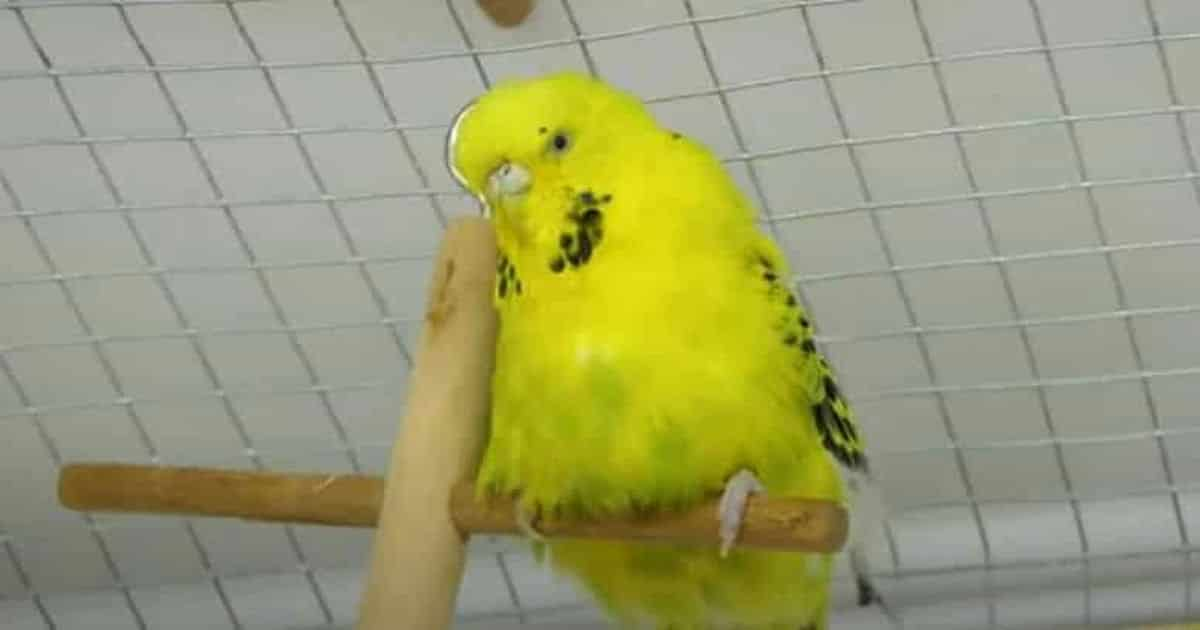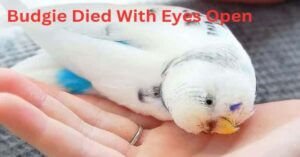Do Budgies Really Die of Loneliness?
Budgie creatures are highly sociable and thrive on interaction. They enjoy the company of humans and other budgies alike. However, the question of whether budgies can die from loneliness arises.
Yes, budgies can die of loneliness if they are deprived of social interaction for an extended period of time. Budgies are highly sociable birds that thrive on companionship and can suffer from depression and even die when lonely.
Therefore, budgie owners need to ensure their pets have regular social interaction and opportunities for stimulation to prevent the harmful effects of loneliness on their overall health and longevity. For more, scroll down.
Do Budgies Die Of Loneliness?
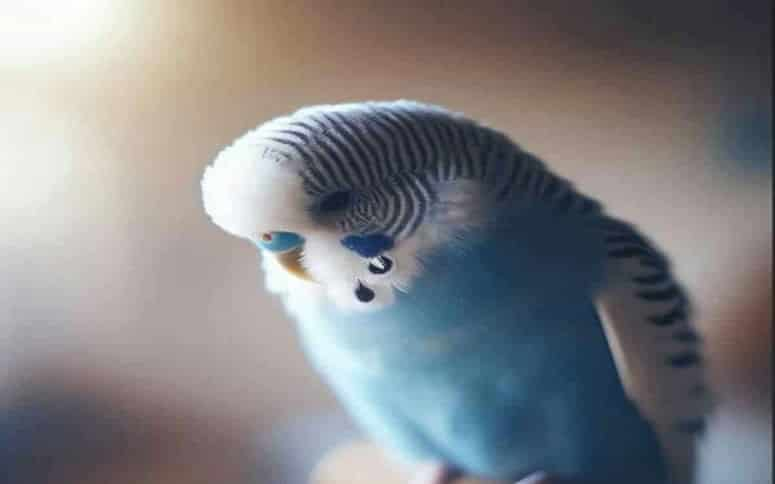
Budgies can indeed die from loneliness. Loneliness can have a significant impact on budgies, leading to potential health issues and even death. Budgies are social animals and thrive in the company of others of their kind.
Here’s what you need to know about the effects of loneliness on budgies:
How Does Loneliness Affect Budgies?
Loneliness can cause budgies to feel stressed, anxious, and depressed. The absence of social interaction can lead to decreased mental stimulation and boredom. Lack of companionship may result in loss of appetite and weight loss.
Budgies may exhibit self-destructive behaviors such as excessive feather plucking or self-mutilation. Loneliness can weaken the immune system, making budgies more susceptible to diseases and infections.
Signs And Symptoms Of Loneliness In Budgies
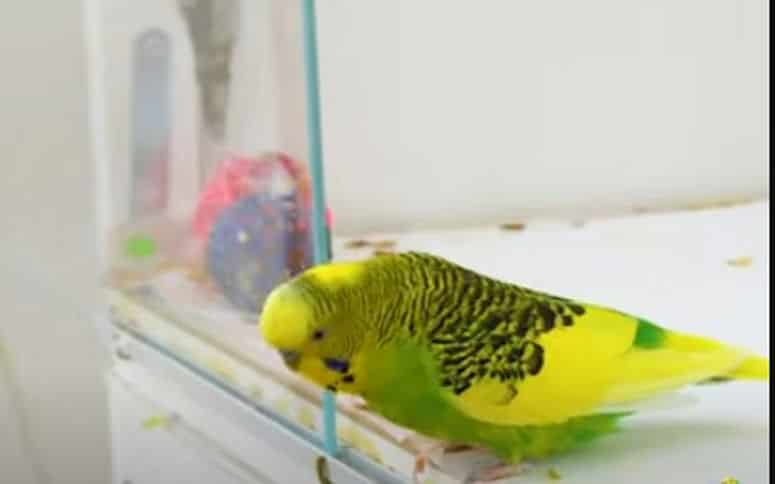
Loneliness in budgies can lead to serious health issues, and in some cases, it can even result in their death. However, it is vital to understand the signs and symptoms of loneliness to provide the necessary care and attention to your feathered friend.
Here are some indicators that your budgie may be experiencing loneliness:
1. Excessive Vocalization
Budgies are social creatures; they may start to vocalize excessively when they feel lonely. In addition, this can include chirping, squawking, or even screaming. It is their way of seeking attention and companionship.
2. Self-Destructive Behavior
Loneliness can lead to self-destructive behavior in budgies. They may start plucking their feathers, causing bald patches on their bodies. However, this behavior is a cry for attention and can clearly indicate loneliness.
3. Decreased Appetite
Budgies are known for their healthy appetite. However, when they feel lonely, their appetite may diminish. They may not show interest in their food or eat significantly less than usual.
4. Lethargy and Depression
Loneliness can lead to lethargy and depression in budgies. They may become less active, spending most of their time sitting quietly in their cage. Their lack of energy and enthusiasm for activities can signify loneliness.
5. Aggressive Behavior
Lonely budgies may exhibit aggressive behavior towards their owners or other birds in the household. They may bite, peck, or attack to establish dominance or gain attention.
6. Over-preoccupation with Mirrors or Toys
When budgies are lonely, they may become overly fixated on their reflection in a mirror or excessively play with their toys. This behavior is a coping mechanism to fulfill their social needs.
7. Withdrawal from Social Interactions
Budgies that are lonely may withdraw from social interactions. They may avoid contact with other birds or show disinterest in human interaction. They may isolate themselves in a corner of the cage or spend prolonged periods without engaging in any activity.
8. Changes in Sleep Patterns
Loneliness can disrupt a budgie’s sleep pattern. They may have difficulty falling asleep, appear restless at night, or sleep more than usual. These changes in sleep patterns are indications of their emotional distress.
9. Weight Loss and Poor Health
Prolonged loneliness can take a toll on a budgie’s overall health. They may experience weight loss, have a weakened immune system, and be more prone to illnesses. Regular veterinary check-ups are crucial to ensure their well-being.
10. Unresponsiveness and Lack of Enthusiasm
Lonely budgies may become unresponsive to stimuli and lack enthusiasm for their surroundings. They may lose interest in toys, perches, and even food, further exacerbating their feelings of loneliness.
Remember, budgies are highly social birds, and they thrive in the company of others. Therefore, addressing their loneliness and providing companionship and stimulation is vital to ensure their happiness and well-being.
How Long Does Budgie Die Of Loneliness?

Budgies are highly social creatures that require regular interaction with their owners or bird companions to remain healthy. Prolonged loneliness can lead to stress, which may cause a decline in their health over time.
While there’s no exact timeframe for how long it takes for a budgie to die from loneliness, as individual birds may respond differently, chronic loneliness can shorten a budgie’s lifespan and lead to death more quickly than if they were socially satisfied.
Their well-being must ensure adequate social interaction with humans or other birds.
How Can I Prevent My Budgie From Dying Of Loneliness?
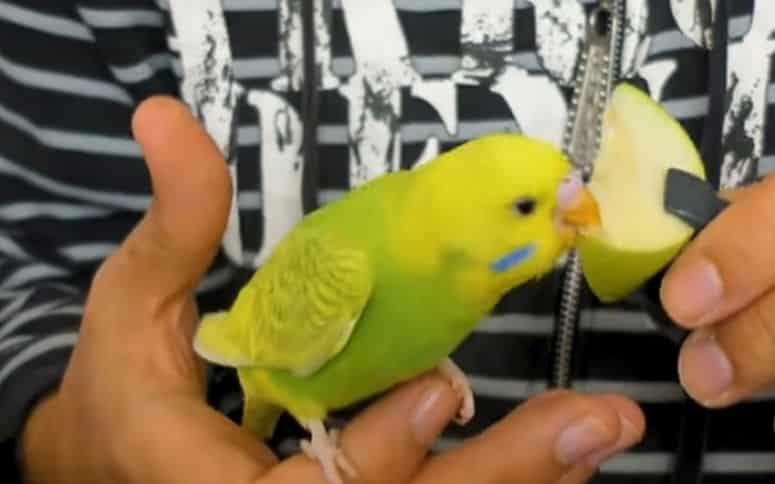
Loneliness can have a profound impact on the well-being of budgies. Here are some effective ways to prevent your budgie from experiencing loneliness:
- Spend quality time with your budgie daily, interacting and providing mental stimulation.
- Consider getting another budgie as a companion for your lonely budgie, remembering that proper introductions and housing arrangements are necessary.
- Provide a variety of toys, perches, and activities to keep your budgie mentally and physically engaged.
- Create a stimulating environment by incorporating diverse sounds like music or nature sounds.
- Ensure a balanced diet and encourage natural foraging through food puzzles and treats.
Remember, budgies are highly social creatures; providing them with companionship and a stimulating environment is essential for their well-being. Addressing their social needs can help prevent loneliness and ensure your feathered friend’s happy and healthy life.
Do Budgies Know When Another Budgie Died?
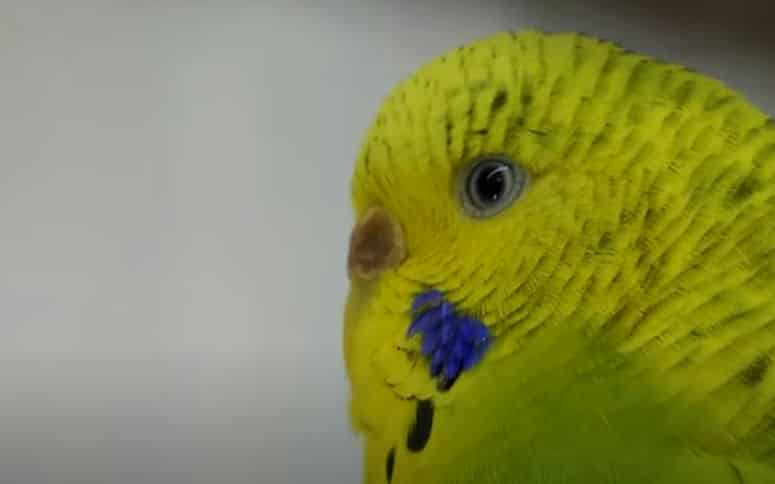
Budgies, like many social birds, can show signs of recognition and reaction to the death of a companion. While it’s not the same as human understanding of death, they do notice the absence of their companion and may appear to grieve.
How Do Budgies React To The Death Of Another Budgie?
Budgies may display various behaviors when they lose a cagemate. Here are some ways they might react:
- Changes in behavior: A budgie may become quieter, less active, or show signs of confusion after the death of another budgie.
- Looking for the departed budgie: Budgies may search for their deceased companion by flying around the cage or calling out.
- Increased bonding with humans: In the absence of another budgie, a surviving budgie might seek more interaction and attention from its human owner.
- Grief-like behaviors: Some budgies may exhibit behaviors similar to grieving, such as loss of appetite, increased sleep, or withdrawn behavior.
However, owners need to provide extra care and attention to support the surviving budgie’s emotional needs.
Tips For Introducing A New Budgie To An Existing One
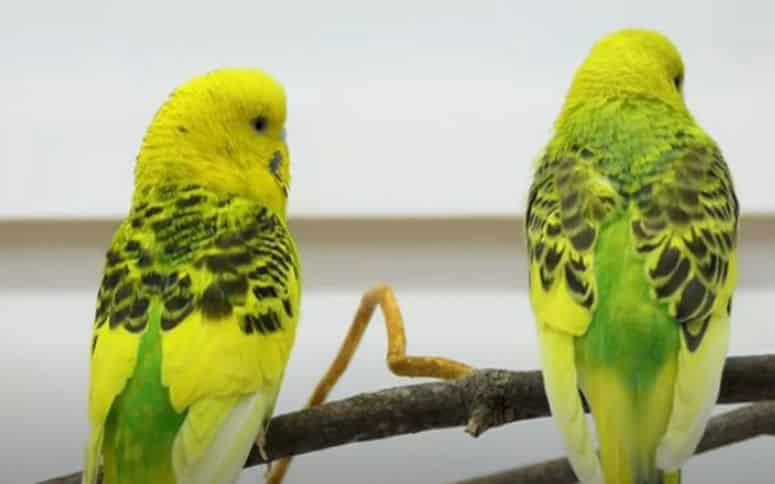
Introducing a new budgie to an existing one requires careful planning and supervision. Here are a few tips to facilitate a smooth introduction:
- Separate cages: Keep the budgies in separate cages placed near each other. This allows them to observe and communicate without direct physical contact.
- Shared playtime: Introduce shared playtime sessions where both budgies can interact in a neutral space outside their cages. This helps in building positive associations and reducing territorial instincts.
- Positive reinforcement: Reward both budgies with treats and praise whenever they exhibit calm and friendly behavior towards each other. This reinforces the idea of companionship as a positive experience.
- Supervision: Monitor the interactions between the budgies closely, stepping in if any aggressive behaviors arise. Gradually increase their time together as they become more comfortable.
By following these tips and providing your budgie with a compatible companion, you can help alleviate feelings of loneliness and create a harmonious social environment for your feathery friends.
Frequently Asked Questions On Do Budgies Die Of Loneliness
Can A Budgie Survive Alone?
Yes, budgies can survive alone, but they are social birds and thrive in the company of other budgies or humans. Keeping a budgie alone may lead to loneliness, depression, and a poor quality of life. Providing them with social interaction and companionship is important to keep them happy and healthy.
What Is The Most Common Cause Of Death In Budgies?
The most common cause of death in budgies is the protozoal infections trichomonas and giardia. Traumatic accidents and accidental poisonings can also be common causes. Additionally, unsupervised freedom in the home can lead to injuries caused by other pets.
Do Budgies Get Sad Alone?
Yes, budgies can get sad when they are alone. Loneliness can lead to stress and even life-threatening conditions like diarrhea. Having at least two budgies is recommended to keep them happy and engaged.
How Do You Make A Lonely Budgie Happy?
To make a lonely budgie happy, spend quality time with them, providing mental stimulation, toys, and a varied diet. Consider getting a companion budgie or providing a mirror for them to interact with. Create a safe and comfortable environment with appropriate temperature and lighting.
How Do I Know If My Budgie Is Lonely?
If your budgie constantly chirps, bites its cage, or shows signs of aggression, it may feel lonely. Look for changes in behavior or a lack of interest in toys or activities as indicators of loneliness. Consider getting another budgie if you suspect your bird is lonely.
Sum Up
Budgies can indeed die of loneliness, as they are highly social creatures that rely on companionship for their well-being.
Without the presence of another budgie or regular interaction with humans, they can experience stress, depression, and even inactivity, leading to health issues.
Therefore, providing them with social stimulation and companionship ensures their happiness and longevity.
Hello Dear, I'm Poli Kolymnia, owner of many birds (including budgies).
With a deep passion for these feathered companions, I'm here to share my expertise and extensive knowledge on birds care.
My articles cover essential topics like diet, housing, care, and health, providing practical tips to help you create a happy and thriving environment for your birds.

